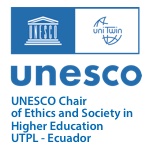Relations between phenomenology of religion and analytic philosophy.
Abstract
Analytic philosophy originated in the Anglo-Saxon world and developed mainly in two traditions: One inspired by logic where the relations between logical calculus, language and thought were elucidated; and the other oriented towards the direction of ordinary language. This division led to the emergence of important disciplines such as: philosophy of language, analytical philosophy of religion, philosophical theology, among others. It is on the basis of this cultivation of knowledge that we want to analyze whether there is a connection between analytical philosophy and phenomenology of religion that is not merely circumstantial. The theoretical basis with which this hypothesis will be explained is that phenomenology appeals to the description of the religious phenomenon from the principle of strict correspondence between noesis and noema that allows to determine both the analysis of the form of the religious act-its logic-as well as its specific mode of its reference to the object-i.e. its
Downloads
References
Barrett, C. (2005). The Wittgensteinian Revolution. In Laurence Paul Hemming Harriet A. Harris, , Christopher J. Insole (eds.), Faith and Philosophical Analysis : The Impact of Analytical Philosophy on the Philosophy of Religion (pp. 61–75). Taylor & Francis Group.
Beuchot, Puente, M. (2017). Filosofía de la religión.. ITESO - Instituto Tecnológico y de Estudios Superiores de Occidente. https://elibro.net/es/lc/bibliotecautpl/titulos/40946
Estrada, J.Antonio. (2010). Corrientes actuales de Filosofía de la religión. Daímon. Revista Internacional de Filosofía, 50 (2010), pp. 43-54. https://revistas.um.es/daimon/article/view/147131
Føllesdal, D. (2013). Filosofía analítica: ¿qué es y por qué uno debería involucrarse? En Hans-Johann Glock, (ed.), El Surgimiento de La Filosofía Analítica, (pp.19–42). Círculo Ometeotl.
Hacker, Stephan. (2013). El surgimiento de la filosofía analítica del siglo XX. En Hans-Johann Glock (ed.), El surgimiento de la filosofía analítica (95- 132). Círculo Ometeotl.
Harris, Harriet A. & Insole, Christopher J. (2005). Faith and Philosophical Analysis: The Impact of Analytical Philosophy on the Philosophy of Religion. Routledge.
Hering, J. (2019). Fenomenología y Filosofía Religiosa. Estudio Sobre La Teoría de La Conciencia Religiosa. (Trad y edición por Jimmy Hernández, Marcelo y Francisco Javier Herrero Hernández ).Ediciones Universidad San Damaso. https://doi.org/10.1017/CBO9781107415324.004.
Héring, Jean (1927). «Sub Specie Aeterni. Réponse à Une Critique de La Philosophie de Husserl». Revue d’histoire et de Philosophie Religieuses 7, no. 4 (1927): 351–64. https://doi.org/10.3406/rhpr.1927.2639.
Husserl, E. (1999). Investigaciones Lógicas, I. (Eds, Manuel Morente, G and José Gaos). Alianza editorial.
Husserl, E. (2008). La Crisis de las Ciencias Europeas y la Fenomenología Trascendental. (Julia Iribarne ed.). Prometeo Libros.
Mehl, Édouard. (2021). «La ‘Philosophie Religieuse’ de Jean Héring». Revue d’histoire et de Philosophie Religieuses 101, (1): 55–73. https://doi.org/10.15122/isbn.978-2-406-11502-1.p.0055 La.
Monroy, M. (1995). La vuelta a los orígenes: E. Husserl y G. Frege. Panorámica general: En torno a la relación entre fenomenología y filosofía analítica. Investigaciones fenomenológicas: Anuario de la Sociedad Española de Fenomenología, 1, 99-118.
Moros, E. (2015). De la Filosofía Analítica al Teísmo: Antony Flew. Scientia et Fides 3 (2): 57–84. https://doi.org/10.12775/SetF.2015.022.
Otto, R. (2001). Lo Santo. Lo Racional y lo Irracional en la Idea de Dios. Alianza editorial.
Romerales, E. (1991). Filosofía Analítica de La Religión. Isegoria 3, 147–59.
Sádaba, J. (1994). «Filosofía Analítica de La Religión. Filosofía y Religión» En Wittgenstein. In Filosofía de La Religión Estudios y Textos, edited by Manuel. Fraijó, 1st ed. Madrid: Trotta.
Schaeffler, Richard. (2003).Filosofía de La Religión. [Edited by José María Hernández Blanco y Fermín Cebrecos Bravo]. Salamanca: Sígueme Salamanca,
Scheler, M. (2007). De lo Eterno en el Hombre. [Trads. Javier M., Julian., O]. Madrid: Ediciones Encuentro.
Solari, Enzo. (2010). La Raíz de Lo Sagrado. Contribuciones de Zubiri a la Filosofía de la Religión. Ril editor.
Copyright (c) 2023 © Analysis

This work is licensed under a Creative Commons Attribution-NonCommercial-NoDerivatives 4.0 International License.







